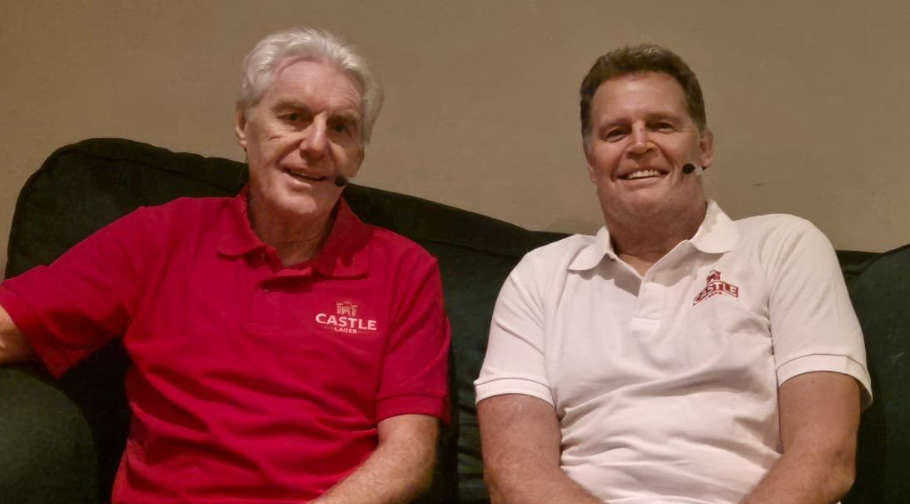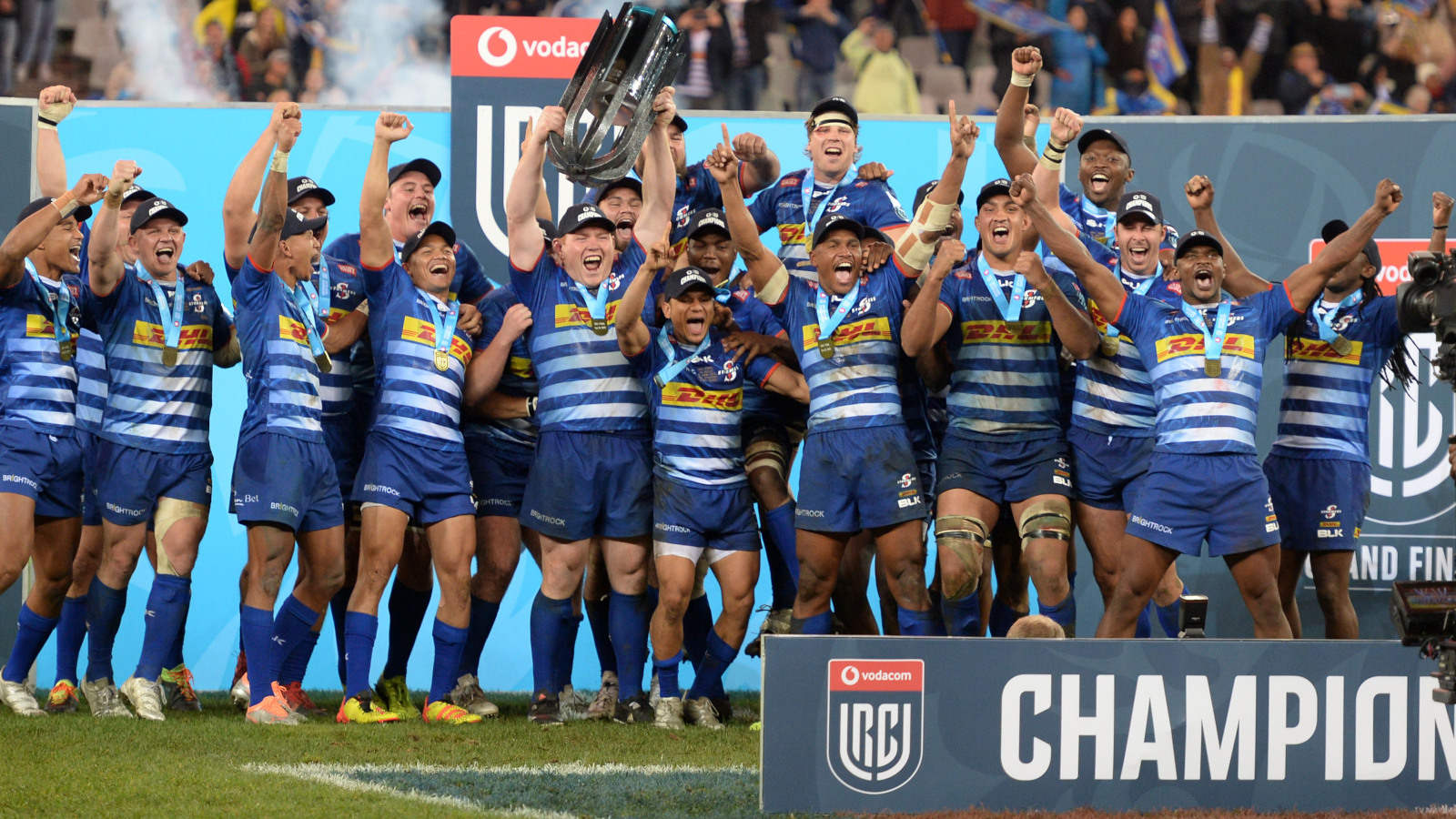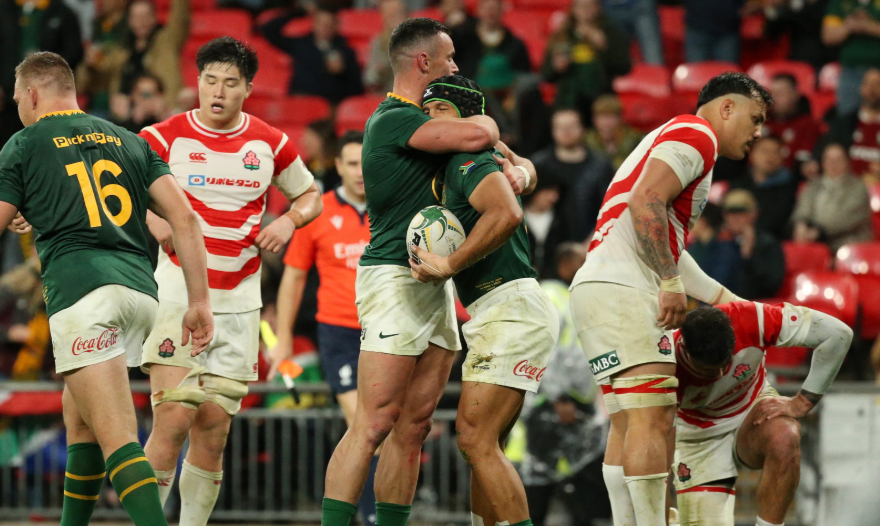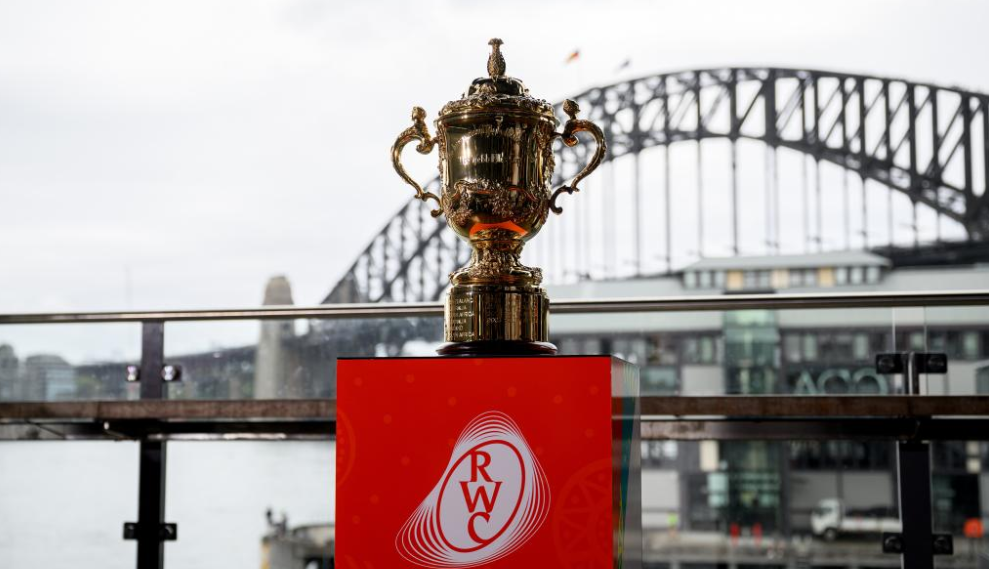South African sport has seen two remarkable revivals in recent years, spearheaded by two master tacticians: Rassie Erasmus and Hugo Broos. Both men have not only resurrected the fortunes of the national rugby and football teams, respectively, but have also instilled a newfound belief among players and supporters alike. Their impact has been so significant that they recently met to discuss their philosophies and share insights—an encounter that symbolised the unifying power of sport and the parallels between their approaches.
Rassie Erasmus: The Man Who Revived the Springboks
When Rassie Erasmus was appointed South Africa’s Director of Rugby in 2018, the Springboks were in dire straits. A series of poor performances under former coach Allister Coetzee had left the team’s reputation in tatters. The once-mighty Springboks, who had lifted the Rugby World Cup in 1995 and 2007, were struggling for identity and consistency.
Erasmus immediately set about rebuilding the team, emphasizing a return to traditional Springbok strengths: physical dominance, set-piece excellence, and a strong defensive system. He also understood the importance of team culture and national unity, ensuring that players bought into a collective vision. His tenure as head coach peaked with South Africa’s triumphant 2019 Rugby World Cup campaign in Japan, where they dismantled England 32-12 in the final. That victory not only reaffirmed South Africa’s place as a rugby powerhouse but also served as an inspirational moment for the nation, mirroring the emotional impact of their 1995 triumph under Nelson Mandela’s gaze.
However, Erasmus’ contribution to the Springboks’ success did not end there. After stepping down as head coach, he handed the reins to his trusted deputy, Jacques Nienaber, but remained heavily involved in strategic planning and team management. His influence persisted throughout the 2021 British & Irish Lions series and culminated in the Springboks defending their World Cup title in 2023 under Nienaber’s leadership. While Nienaber executed the day-to-day coaching, the Erasmus blueprint was unmistakable. His innovative approach, including his controversial yet effective use of video analysis to highlight refereeing inconsistencies, kept the Boks ahead of their rivals.
Jacques Nienaber’s Role: The Executor of Erasmus’ Vision
Jacques Nienaber may not have received the same level of recognition as Erasmus, but his role as Springbok head coach from 2020 to 2023 was instrumental in sustaining South Africa’s dominance. Nienaber, a renowned defensive strategist, had been Erasmus’ right-hand man for years. Together, they had crafted one of the most effective defensive systems in modern rugby, with South Africa’s aggressive rush defense becoming their hallmark.
During his tenure, Nienaber maintained Erasmus’ tactical framework while adding subtle refinements. His ability to manage high-pressure situations was evident in the Springboks’ nail-biting victories during the 2023 World Cup, particularly in the one-point wins over France, England, and New Zealand en route to defending their title. While Erasmus’ influence loomed large, Nienaber deserves immense credit for ensuring the Springboks remained at the summit of world rugby. His departure to Leinster at the end of 2023 marked the end of an era, but the foundations laid by Erasmus and Nienaber continue to drive the Springboks forward.

Hugo Broos: Bafana Bafana’s Belgian Saviour
While Erasmus was orchestrating the Springboks’ resurgence, another visionary was breathing new life into South African football. Hugo Broos arrived in 2021 to take over Bafana Bafana, a team that had become synonymous with underachievement and missed opportunities. Since their famous victory in the 1996 Africa Cup of Nations (AFCON), South Africa had endured years of decline, struggling to qualify for major tournaments and failing to make an impact on the continental stage.
Broos, who led Cameroon to AFCON glory in 2017, brought a no-nonsense approach to Bafana Bafana. His first major decision was to rejuvenate the squad, phasing out aging players in favor of younger, hungrier talents. This bold move was initially met with skepticism, but it soon bore fruit as South Africa qualified for the 2023 AFCON, where they exceeded expectations by reaching the semi-finals. Furthermore, they returned with the bronze medal, the first time that Bafana had done so since the 2000 edition.
What made Broos’ success even more impressive was his ability to instill tactical discipline and defensive solidity—qualities that had long been missing from South African football. Under his guidance, Bafana Bafana developed a clear playing identity, blending youthful exuberance with structured organisation. His meticulous preparation and emphasis on teamwork mirrored Erasmus’ approach with the Springboks, demonstrating that success is often rooted in discipline and strategic clarity.
A Meeting of Minds: Erasmus and Broos
Recognising their shared experiences in transforming South African sports, Erasmus and Broos recently met, with a photograph of the two gentlemen setting tongues wagging about what the two had discussed. While the specifics of their discussion remain private, the meeting symbolised the cross-sport impact of elite coaching. Both men understand the pressures of leading a national team, managing expectations, and dealing with external criticism while staying true to their philosophies.
Not elaborating much on what they talked about, Broos said that he iss likely to meet up with Erasmus for a training camp and Springboks match, stating, “We will see each other to discuss about how I manage a team, how he manages a team, I was very happy to meet him.”
Their conversation likely revolved around leadership, resilience, and the importance of fostering a winning mentality. Erasmus’ ability to unite a divided nation through rugby and Broos’ determination to restore South African football’s pride are testaments to the power of sport as a tool for national rejuvenation. Their respective teams’ recent successes have reignited passion among fans, proving that with the right leadership, South Africa can compete at the highest levels in both rugby and football.
Parallels Between the Two Turnarounds
Despite operating in different sports, Erasmus and Broos share striking similarities in their approaches:
- Strategic Overhauls: Both men inherited struggling teams and immediately implemented radical changes. Erasmus reinstated a traditional Springbok identity, while Broos built a youthful, disciplined squad.
- Emphasis on Team Culture: They prioritised unity, trust, and a shared vision, fostering environments where players could thrive.
- Tactical Innovations: Erasmus revolutionised South Africa’s game management in rugby, while Broos instilled defensive solidity and structure in Bafana Bafana.
- Resilience in the Face of Criticism: Both faced skepticism and criticism but stayed true to their methods, ultimately proving their doubters wrong.
Conclusion: A Golden Era for South African Sport?
The stories of Rassie Erasmus and Hugo Broos serve as reminders that true leadership is about vision, adaptability, and unwavering belief. Their influence has not only transformed the Springboks and Bafana Bafana but has also rekindled national pride in South African sport. With Erasmus continuing to steer South African rugby and Broos solidifying Bafana Bafana’s resurgence, the nation stands on the cusp of a golden era.
As their recent meeting demonstrated, great minds think alike, and South African sport is reaping the rewards of their brilliance.




